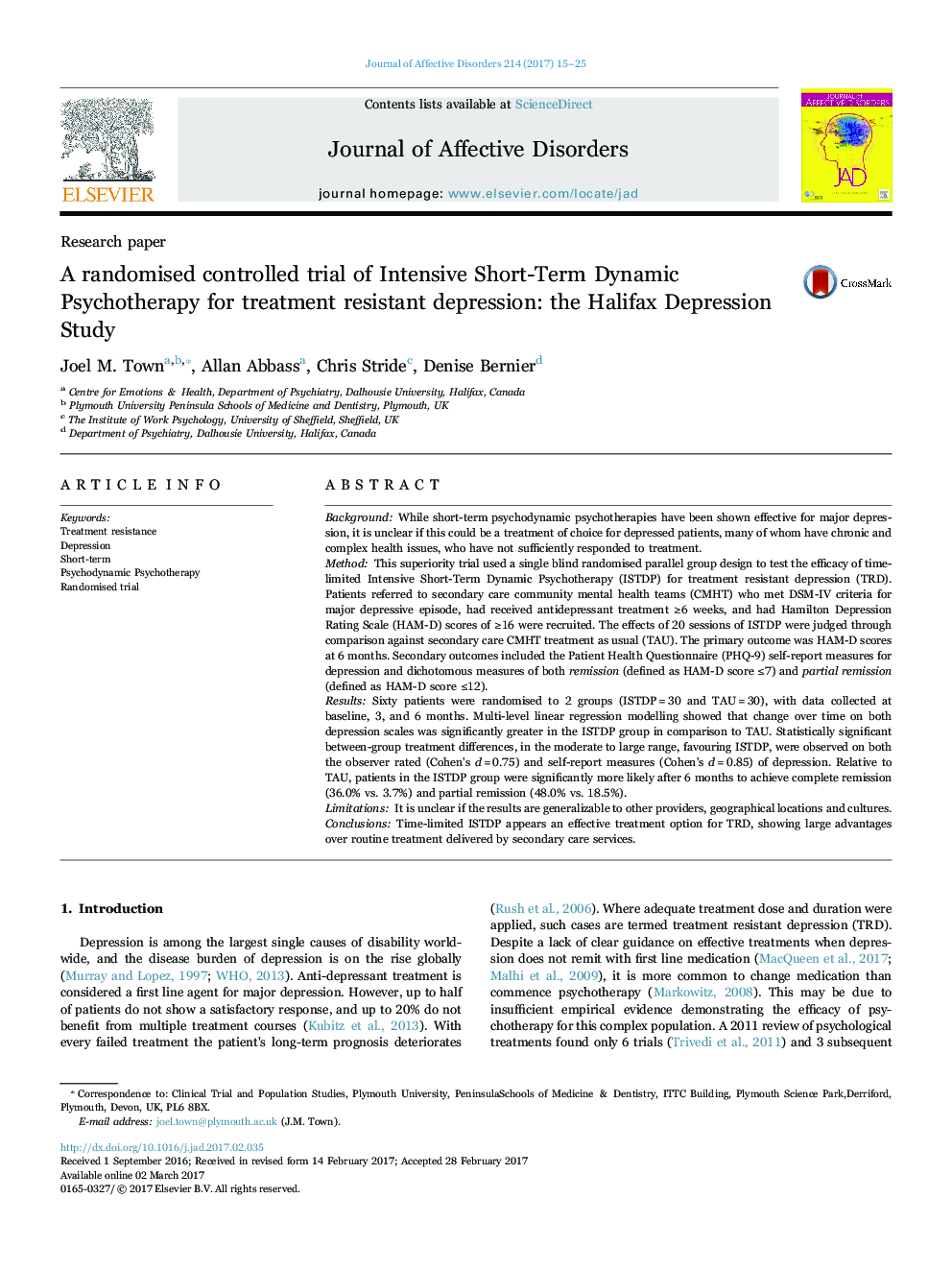| کد مقاله | کد نشریه | سال انتشار | مقاله انگلیسی | نسخه تمام متن |
|---|---|---|---|---|
| 5722030 | 1608111 | 2017 | 11 صفحه PDF | دانلود رایگان |
- A RCT found that ISTDP appears an effective treatment option for TRD.
- ISTDP showed large advantages over routine secondary care treatment (d=0.75-0.85).
- ISTDP is significantly more likely to bring remission (36.0% vs. 3.7%).
BackgroundWhile short-term psychodynamic psychotherapies have been shown effective for major depression, it is unclear if this could be a treatment of choice for depressed patients, many of whom have chronic and complex health issues, who have not sufficiently responded to treatment.MethodThis superiority trial used a single blind randomised parallel group design to test the efficacy of time-limited Intensive Short-Term Dynamic Psychotherapy (ISTDP) for treatment resistant depression (TRD). Patients referred to secondary care community mental health teams (CMHT) who met DSM-IV criteria for major depressive episode, had received antidepressant treatment â¥6 weeks, and had Hamilton Depression Rating Scale (HAM-D) scores of â¥16 were recruited. The effects of 20 sessions of ISTDP were judged through comparison against secondary care CMHT treatment as usual (TAU). The primary outcome was HAM-D scores at 6 months. Secondary outcomes included the Patient Health Questionnaire (PHQ-9) self-report measures for depression and dichotomous measures of both remission (defined as HAM-D score â¤7) and partial remission (defined as HAM-D score â¤12).ResultsSixty patients were randomised to 2 groups (ISTDP=30 and TAU=30), with data collected at baseline, 3, and 6 months. Multi-level linear regression modelling showed that change over time on both depression scales was significantly greater in the ISTDP group in comparison to TAU. Statistically significant between-group treatment differences, in the moderate to large range, favouring ISTDP, were observed on both the observer rated (Cohen's d=0.75) and self-report measures (Cohen's d=0.85) of depression. Relative to TAU, patients in the ISTDP group were significantly more likely after 6 months to achieve complete remission (36.0% vs. 3.7%) and partial remission (48.0% vs. 18.5%).LimitationsIt is unclear if the results are generalizable to other providers, geographical locations and cultures.ConclusionsTime-limited ISTDP appears an effective treatment option for TRD, showing large advantages over routine treatment delivered by secondary care services.
Journal: Journal of Affective Disorders - Volume 214, May 2017, Pages 15-25
